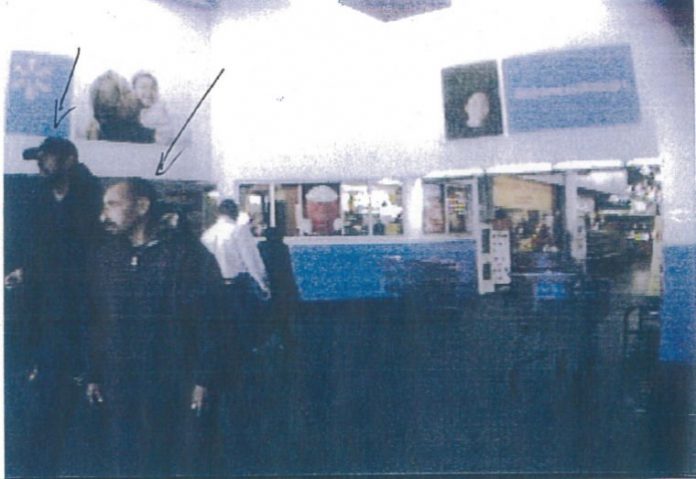Michael McVey never had a chance to say goodbye to his beloved dog after a pair of thieves stole his car and ditched it in San Jose, while his female Akita, named Keiko, was waiting in the back seat. They left the animal to die, leaving her inside McVey’s Nissan Pathfinder for four days before authorities located the vehicle and found Keiko dead.
McVey received a call on the morning of Feb. 27 after the San Jose Police Department discovered the car in the parking lot of the San Jose Walmart, 30 miles away from the Gilroy Walmart where it was taken. Keiko died in the back seat after being deprived of food and water, waiting for the owner who raised her from a puppy and had been by her side for 15 years.
“Keiko was the most gentle, sweetest dog you could ever meet,” he said. “She’s the kind of dog who when she saw somebody down in the dumps she’d make them smile. She’s one in a billion dog. There are great dogs out there, but she was the one.”
According to the GPD, McVey’s vehicle was stolen at approximately 9 a.m. Feb. 23. When he returned to his SUV minutes after he left it – with the rear windows lowered to allow Keiko to breathe – he wondered if somebody was playing a sick joke on him.
“Who would do that with a dog in it?” McVey said.
He then rushed to the Walmart service desk for help, unsure of what else to do.
A Walmart employee called the GPD on McVey’s behalf, and when the investigating officer arrived he said police asked if there were any witnesses.
McVey pointed to a surveillance camera in the parking lot, he recalled.
Walmart staff permitted the officer to watch the surveillance footage of the vehicle theft, but he was barred from watching himself.
Hoping he could use images from the footage to share with the Dispatch and other local news outlets that might lead to the capture of the suspects while Keiko was still alive, McVey asked for a copy.
Walmart refused, he said. And that’s in accordance with corporate guidelines, a Walmart spokesperson said Wednesday.
“It’s been our long-standing policy that we only share our video for investigative purposes to the authorities,” Diana Gee said. “We’ll definitely share it with police, but we never hand it over to a customer.”
It was up to the Gilroy store whether staff wanted to release still images of the suspects to the media, Gee added, but they may have misinterpreted corporate guidelines.
“This is a very sad and unfortunate situation. We are more than willing to allow for the release of a still shot if it helps identify a suspect,” she said.
On Feb. 28 the Dispatch obtained still images of the suspects from the Gilroy Police Department showing two adult males leaving the store. McVey said he hopes the images will go viral, but he wishes Walmart would have shared the footage before Keiko died.
“There is so much more that could have been done,” he said. “I wouldn’t have a dead dog. If the video was released, those guys would be locked up, and those crimes wouldn’t have been committed.”
Still, McVey has some questions about Walmart’s policy and wonders why they never share images with customers who are victims of crimes.
“How would they feel if somebody took something so precious from them and if somebody had the evidence to save it?” he said.
But what hurts him more is the fact that his abandoned car – with Keiko still inside – was sitting in the San Jose Walmart parking lot for four days unnoticed by the store’s own security patrol.
Instead of leaving her to die, the suspects “could have picked another car, or they could have just let her out,” McVey said.
Fifteen years ago, McVey contacted a friend in hopes of buying a new golden retriever puppy. He saw Keiko, just eight weeks old at the time, and they’ve been inseparable ever since.
“Keiko just loved people,” he added. “She’s never gone after anybody and never tried to bite anybody. She loved kids and would let them pull at her and poke her. Everyone knew she would never let anything or anybody get at the kids. That’s just the way she was.”
If the suspects are caught, police say they would be facing grand theft and animal cruelty charges. The charges carry a maximum sentence of four years imprisonment.














